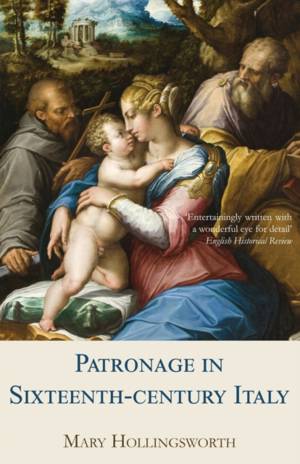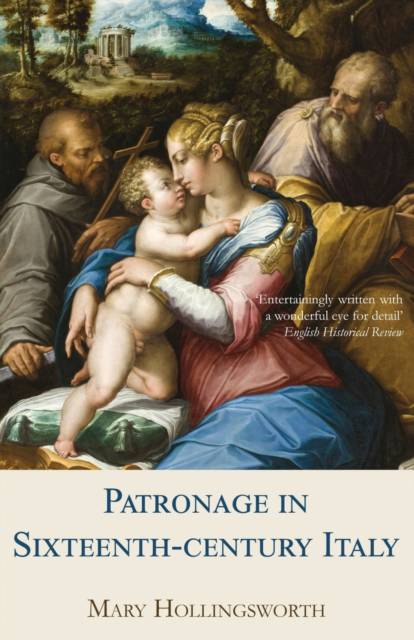
- Afhalen na 1 uur in een winkel met voorraad
- Gratis thuislevering in België vanaf € 30
- Ruim aanbod met 7 miljoen producten
- Afhalen na 1 uur in een winkel met voorraad
- Gratis thuislevering in België vanaf € 30
- Ruim aanbod met 7 miljoen producten
Zoeken
Omschrijving
'Entertainingly written with a wonderful eye for detail, it provides a useful grounding for any introduction to the historical context in which the works of art were produced.'
English Historical Review 'She carefully weaves together political circumstances, personal ambitions and evocative detail to create a backdrop for the activities of patrons.'
Burlington Magazine 'An important contribution to the study of the Reformation as well as to the history of art in a crucial and wonderfully fecund period.'
The Catholic Herald 'It will be of use not just to the scholar but to anyone who travels in Italy and has wondered about the "why" and the "how" of some of the greatest masterpieces of European art.'
Independent on Sunday A comprehensive study of the patrons of sixteenth-century Italian art, this book investigates the motives behind the commissioning of the magnificent palaces, villas, churches, statues, portraits, fresco cycles and altarpieces for which this period is justly celebrated. This was a century of famous patron-artist partnerships: Pope Julius II and Bramante and the rebuilding of St Peter's; Pope Paul III and Michelangelo's Last Judgement in the Sistine Chapel; Palladio's beautiful villas in the Veneto for Venetian patricians; and Vasari's work for Cosimo I that established Florence as a centre of artistic excellence. The book examines how these patrons financed their projects, what factors lay behind their choice of styles and themes and their often complex relationships with their artists, agents and advisors in an era of momentous political and religious change.
English Historical Review 'She carefully weaves together political circumstances, personal ambitions and evocative detail to create a backdrop for the activities of patrons.'
Burlington Magazine 'An important contribution to the study of the Reformation as well as to the history of art in a crucial and wonderfully fecund period.'
The Catholic Herald 'It will be of use not just to the scholar but to anyone who travels in Italy and has wondered about the "why" and the "how" of some of the greatest masterpieces of European art.'
Independent on Sunday A comprehensive study of the patrons of sixteenth-century Italian art, this book investigates the motives behind the commissioning of the magnificent palaces, villas, churches, statues, portraits, fresco cycles and altarpieces for which this period is justly celebrated. This was a century of famous patron-artist partnerships: Pope Julius II and Bramante and the rebuilding of St Peter's; Pope Paul III and Michelangelo's Last Judgement in the Sistine Chapel; Palladio's beautiful villas in the Veneto for Venetian patricians; and Vasari's work for Cosimo I that established Florence as a centre of artistic excellence. The book examines how these patrons financed their projects, what factors lay behind their choice of styles and themes and their often complex relationships with their artists, agents and advisors in an era of momentous political and religious change.
Specificaties
Betrokkenen
- Auteur(s):
- Uitgeverij:
Inhoud
- Aantal bladzijden:
- 826
- Taal:
- Engels
Eigenschappen
- Productcode (EAN):
- 9781910198568
- Verschijningsdatum:
- 2/12/2014
- Uitvoering:
- Paperback
- Formaat:
- Trade paperback (VS)
- Afmetingen:
- 129 mm x 198 mm
- Gewicht:
- 793 g

Alleen bij Standaard Boekhandel
+ 55 punten op je klantenkaart van Standaard Boekhandel
Beoordelingen
We publiceren alleen reviews die voldoen aan de voorwaarden voor reviews. Bekijk onze voorwaarden voor reviews.











